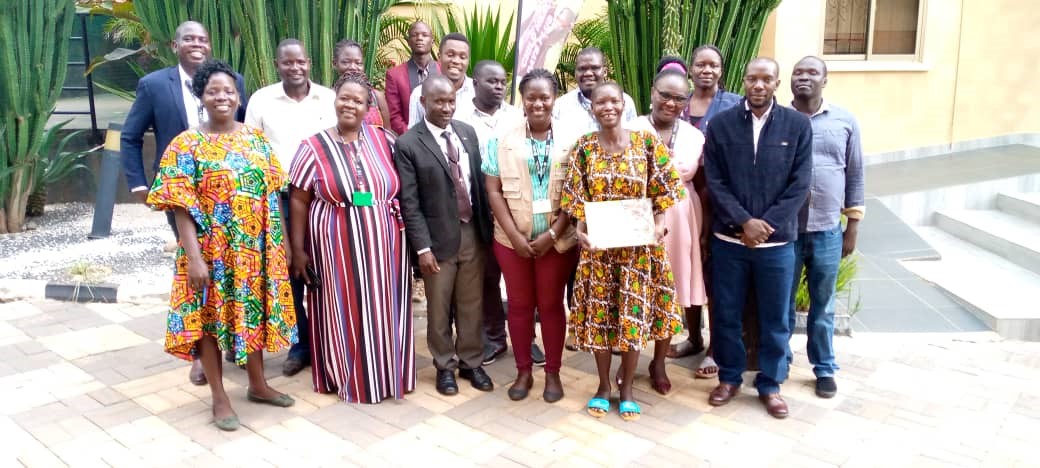The Lamwo District Health Assistant, Mr. David Nyeko highlighted poor WASH and disease burden as the main drivers of malnutrition, with malaria incidences as high as 43% in the district. “Food insecurity due to high prices of nutritious foods is largely to blame for the high malnutrition in food baskets of Agoro and Lokung sub-counties” he noted while presenting a speech on behalf of the Lamwo District Nutrition Focal Person. He also reported that nutrition screening was ongoing in the district and that rehabilitation of malnourished children was being done, though stock outs of essential commodities was a challenge.
He made the remarks during the recent Lamwo District Nutrition Coordination Committee meeting that convened at Cactus Hotel on Wednesday. The meeting was called by the Lamwo Chief Administrative Officer to discuss the status of the District Nutrition Action Plan and the status of nutrition in the district. In this meeting, The CAtalyzing Strengthened policy aCtion for heAlthy Diets and resiliencE (CASCADE) project implementing partners submitted progress updates and challenges faced during implementation. Specifically, the Africa Innovations Institute (AfrII) highlighted what it intends to do to ensure that women of reproductive age and children Under 5 years access and utilize nutrient dense foods throughout the year.
The District Chairperson, Mr. David Odongmadiki appreciated the continued support from NGOs and committed to continue supporting them in their work. He stated that “a healthy family is productive” and stressed the need to work in harmony with the district to achieve this. The district officials are yet to conduct a council meeting to finalize the passing of the District Nutrition Action Plan (DNAP).

The District officials and partners during the recent Lamwo DNCC meeting held at Cactus hotel. (On the right -front row)- AfrII’s Mr. Emmanuel Owiny, the CASCADE Nutrition Officer for the Gulu Hub.
CASCADE is a multi-country project implemented in 6 countries in Africa including Uganda. The project aims to improve food security and contribute to the reduction of malnutrition of at least 1 million Women of Reproductive Age (WRA) and Children in Benin, Ethiopia, Kenya, Nigeria, Mozambique, and Uganda. In Uganda, CASCADE will be implemented in a selected 15 districts in the Acholi, Tooro, and the Karamoja Regions. These districts were selected owing to the high levels of malnutrition, poverty, and displaced populations. The CASCADE will be aligned with the Nutrition for Growth (N4G) commitments and Uganda’s UNFSS pathway to transform food systems and seeks to operationalize actions deemed to reduce malnutrition among women and children in the Uganda Nutrition Action Plan II (UNAP II). Under CASCADE, AfrII will implement domain 4 which seeks to strengthen women’s capacities to benefit from nutrition-related policies by enabling them to produce, prepare and consume healthy diets.
The CASCADE Project is funded by the Netherlands Ministry of Foreign Affairs through Care International.



